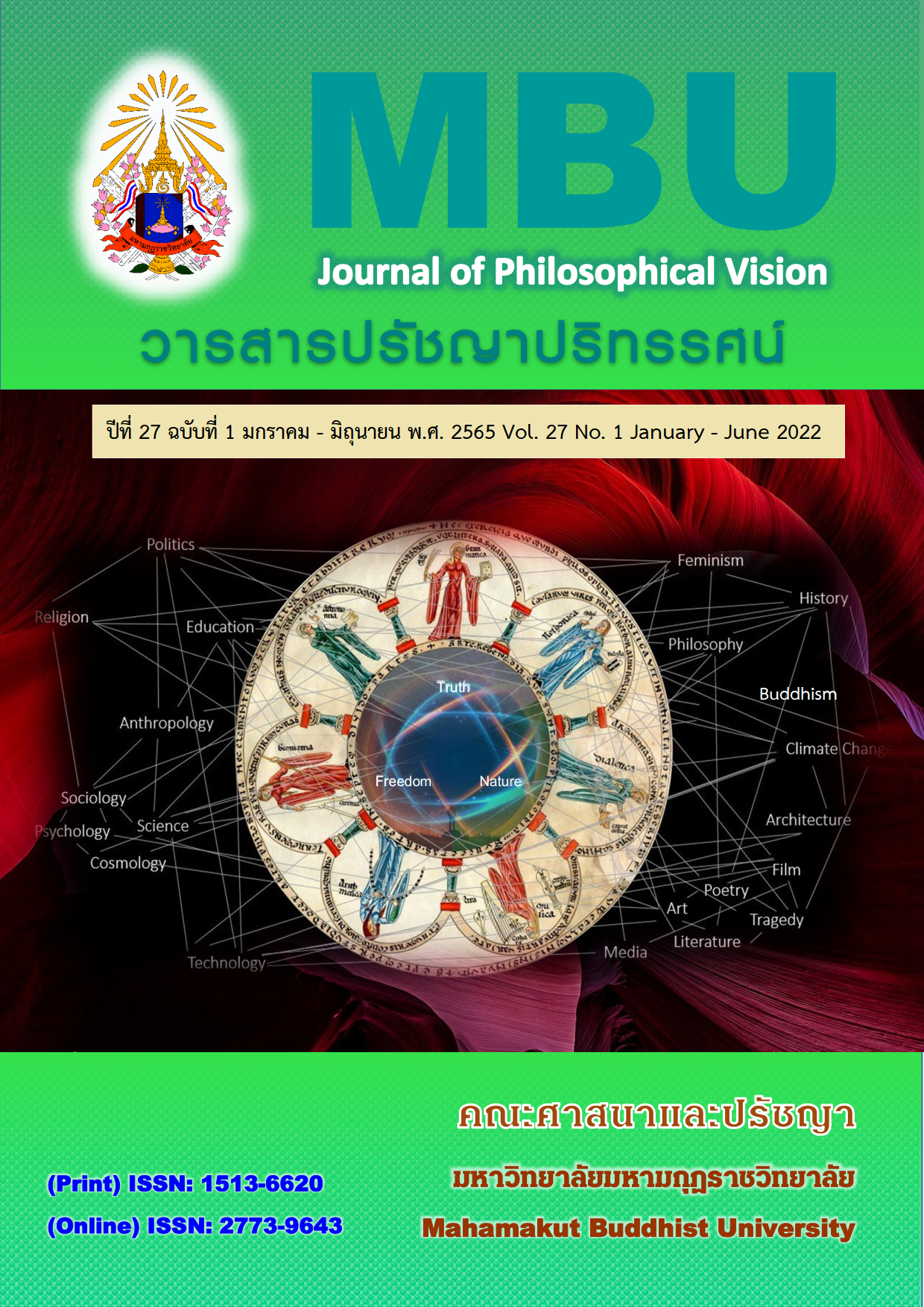Residents’ Attitude towards Tourists in Lanzhou, China
คำสำคัญ:
Resident’s attitude, Tourist, Lanzhou residentsบทคัดย่อ
Tourists have taken the most essential role in the development of tourism industry in Lanzhou. However, the arrival of tourists has some positive and negative impacts on local people’s life. As the characteristic of residents, they are in the position to either offer support for, or to avoid the future development of the tourism industry. So, it is necessary to conduct a study for measuring attitudes of Lanzhou residents toward tourists and figure out influenced factors to provide advices for development of Chinese market. This study adopted individual in-depth interview which is one of qualitative approaches to collect residents’ attitude towards tourists in Lanzhou. And the results of interviews entered into NVivo 11 system for content analysis. All of 22 residents were interviewed in this study to describe their thoughts and opinions toward tourists.
In conclusion, the majority of respondents in this study were inclined to support tourists to visit Lanzhou, holding positive attitudes toward tourists. The findings of the study showed that there are 6 factors influenced resident’s attitude towards tourists: physical distance, the length of residence, economic dependency, seasonality, age and income. And the findings can provide references for the improvement of tourism industry of Lanzhou.
Downloads
เอกสารอ้างอิง
Ambroz, M. (2008). Attitudes of local residents towards the development of tourism in Slovenia: The case of the Primorska, Dolenjska, Gorenjska and Ljubljana regions. Anthropological Notebooks, 14(1): 63-79.
Allen, L., & Gibson, R. (1987). Perceptions of community life and services: A comparison between leaders and community residents. Community Development, 18(1): 89-103.
Andriotis, K., & Vaughan, R. D. (2003). Urban residents’ attitudes toward tourism development: The case of Crete. Journal of travel research, 42(2): 172-185.
Bhujell, K., Khemraj, S., Chi, H. K., Lin, W. T., Wu, W., & Thepa, P. C. A. (2021). Trust in the Sharing Economy: An Improvement in Terms of Customer Intention. Indian Journal of Economics and Business, 20(1): 713-730.
Biley, F. C. (2008). Mental Capacity Act 2005 Core Training Set. Journal of Psychiatric and Mental Health Nursing, 15: 523-525.
Candrea, A. N., Ispas, A., Constantin, C., & Hertanu, A. (2012). Residents’ Attitudes Toward Tourism Development in Brasov, Romania. In Faculty of Tourism and Hospitality Management in Opatija. Biennial International Congress. Tourism & Hospitality Industry. Faculty of Tourism & Hospitality Management. University of Rijeka.
Chiang, A. S., Lin, C. Y., Chuang, C. C., Chang, H. M., Hsieh, C. H., Yeh, C. W., & Hwang, J. K. (2011). Three-dimensional reconstruction of brain-wide wiring networks in Drosophila at single-cell resolution. Current biology, 21(1): 1-11.
Choe, J. Y., & O'Regan, M. (2015). The Effects of Tourism Impacts Upon Quality of Life Amongst Expatriates in Macau. Accessed: http://eprints.bournemouth.ac.uk /22915/1/Choe-and-Oregan.pdf
Cronauer, D. (2012). Host-guest relationships in non-commercial tourism settings: WWOOFing in New Zealand. Thesis. Tourism Management. Victoria University of Wellington.
Draper, J., Woosnam, K. M., & Norman, W. C. (2011). Tourism use history: Exploring a new framework for understanding residents’ attitudes toward tourism. Journal of Travel Research, 50(1): 64-77.
Etikan, I., Musa, S. A., & Alkassim, R. S. (2016). Comparison of convenience sampling and purposive sampling. American journal of theoretical and applied statistics, 5(1): 1-4.
Hong, Y., Chen, G., & Bushnell, L. (2008). Distributed observers design for leader-following control of multi-agent networks. Automatica, 44(3): 846-850.
Imbeah, N., Hodibert, V. A., & Amankwa, R. (2016). Residents’ perception of host-guest interaction about Kwahu Easter Festival (KEF) as festival tourism. Africa Dev. and Resou. Res. Ins. J, 25(9): 1-16.
Koerber, R. C. (2011). Determining the Value of Communications: The Development of a Theory and Three-Dimensional Scalar Model for Evaluating and Assigning Values to Communications Relating to Adult Education. Dissertation, Doctor of Education in Higher and Adult Education. The University of Memphis.
Lankford, S. V., & Howard, D. R. (1994). Developing a tourism impact attitude scale. Annals of tourism research, 21(1): 121-139.
Lepp, A. (2007). Residents’ attitudes towards tourism in Bigodi village, Uganda. Tourism management, 28(3): 876-885.
Li, X., & Wan, Y. K. P. (2013). Residents' attitudes toward tourism development in Macao: A path model. Tourism Analysis, 18(4): 443-455.
Long Hui. (2013). A Study on Residents' Perceptions and Attitudes towards Tourism Impacts. Academic Theory, 16: 99-100.
Paraskevaidis, P., & Andriotis, K. (2017). Altruism in tourism: Social exchange theory vs altruistic surplus phenomenon in host volunteering. Annals of Tourism Research, 6(2): 26-37.
Proyrungroj, R. (2015). The attitudes of Thai hosts towards western volunteer tourists. European Journal of Tourism Research, 1(1): 102.
Pavlić, I., Portolan, A., & Puh, B. (2020). Segmenting local residents by perceptions of tourism impacts in an urban World Heritage Site: The case of Dubrovnik. Journal of Heritage Tourism, 15(4): 398-409.
Savenye, W. C., & Robinson, R. S. (1996). Qualitative research issues and methods: An introduction for educational technologists. Handbook of research for educational communications and technology, 1171-1195.
Tieman, M. (2011). The application of Halal in supply chain management: in‐depth interviews. Journal of Islamic Marketing, 2(2): 186-195.
Vong, S., Ly, S., Mardy, S., Holl, D., & Buchy, P. (2008). Environmental contamination during influenza A virus (H5N1) outbreaks, Cambodia, 2006. Emerging infectious diseases, 14(8): 1303.
Wang, Z., Gerstein, M., & Snyder, M. (2009). RNA-Seq: a revolutionary tool for transcriptomics. Nature reviews genetics, 10(1): 57-63.
Woosnam, K. M. (2012). Using emotional solidarity to explain residents’ attitudes about tourism and tourism development. Journal of Travel Research, 51(3): 315-327.
Zhang, C., & Hou, L. (2020). Data middle platform construction: The strategy and practice of National Bureau of Statistics of China. Statistical Journal of the IAOS, 36(4): 979-986.
ดาวน์โหลด
เผยแพร่แล้ว
รูปแบบการอ้างอิง
ฉบับ
ประเภทบทความ
สัญญาอนุญาต
ลิขสิทธิ์ (c) 2022 วารสารปรัชญาปริทรรศน์

อนุญาตภายใต้เงื่อนไข Creative Commons Attribution-NonCommercial-NoDerivatives 4.0 International License.
บทความวิชาการและบทความวิจัย ในวารสารฉบับนี้ ถือเป็นความรับผิดชอบของผู้เขียนเท่านั้น
สงวนลิขสิทธิ์ตามพระราชบัญญัติลิขสิทธิ์






